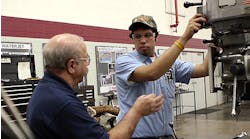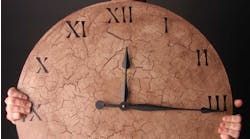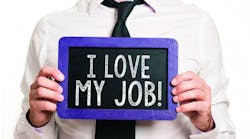Ten years ago this month, former Federal Reserve chairman Alan Greenspan spooked a lot of people by warning investors against the danger of irrational exuberance about the rising value of stocks. He was right, of course, in the way that anyone is right when he makes a blandly obvious statement: fasten your seat belts; don t feed the bears. December is the season for retrospectives, and this is one look backward that I find particularly useful.
On that day, there seemed to be a need to make a choice: keep buying, keep investing, keep planning keep investing, keep buying, keep hoping; or stop, check out, take no risks. Greenspan famously did not elaborate on his comments, or if he did it was done in an obscure way that made him seem more inscrutable.
For the next nine years, Greenspan kept a tight fist on interest rates, because inflation was his particular economic anxiety. Perhaps it also was because he wanted the rest of us to remember, to be mindful, to evaluate things honestly. Happily, for most of us, the former chairman was not warning of some deeper problem, and the economy continued to thrive, mostly.
Anyone who cashed out in December 1996 because they thought the Greenspan was predicting a catastrophe missed out on some terrific opportunities. Since then, the Dow Jones Industrial average has nearly doubled.
This is what we know today, but on any particular day over these years either the optimists who stayed invested or the pessimists who checked out could claim to be right. There were some lofty market peaks in 1997 and 1998, and there were some sour times in 2000 and 2001. Of course, there's much more going on in the world than financial markets, and if that's your frame of reference there are reasons to be optimistic or pessimistic there, too.
The difference between optimists and pessimists is a fairly clear one, but lately I've been looking at sort of a hybrid of the two: the realist. These are people who like to recall the past according to present wisdom, in order to insure their futures against blame. They re building a case for saying I told you so.
December may be the time for reviews, but December 2006 seems to have a particularly gloomy mood and I blame the realists in business, in manufacturing, and in government who seem to be all around urging us to cut our losses, curtail our excesses, and curb our risks.
Among the realists, you may count 38,000 former or soon-to-be former workers at Ford Motor Co. and 35,000 more at General Motors Corp. This is about one half of the production staff at Ford and about one third of the workforce at GM and I wish all of them the best. But, does anyone doubt that these two companies will be better without them, if for no reason other than that they don t want to be there anymore.
Another realist would be Kirk Kerkorian, the bullying billionaire who failed to remake GM according to his current whim, and cashed out his +9% stake in the automaker for about $800 million. That should be real enough for any of us, but one suspects he really was trying to escape any further responsibility there. Both Ford and GM have a lot to do to restore their organizational health, but that s bound to be easier to do without the malingering effect of people who aren't up for the challenge.
The realists case for bailing out on any problem is that it cannot be fixed; best to forget it and move on to something else. That s plainly not the case with Ford or GM, or any other problem about which many people have opinions but only a few have plans and fewer still have a commitment to resolving.
You may know realists, too, but if you re not sure be on the lookout for people who offer no constructive advice or useful insights, no analysis that doesn't remind you of how clever, and safe, they are. Their only perspective is for what has happened recently, which is no way to understand the past or to build a future.









